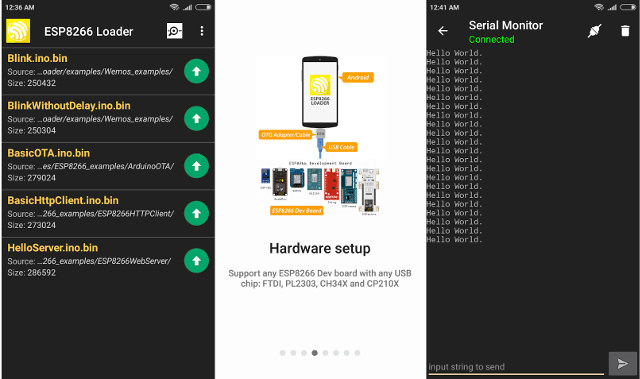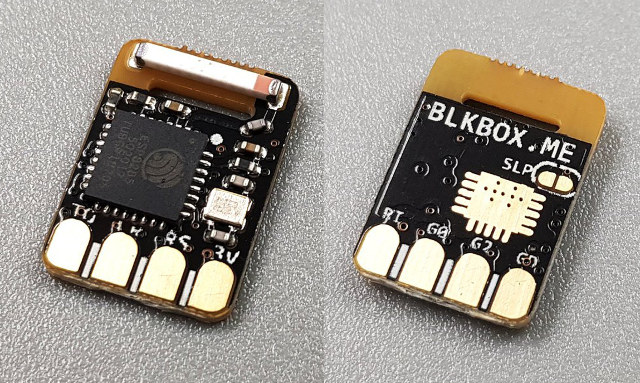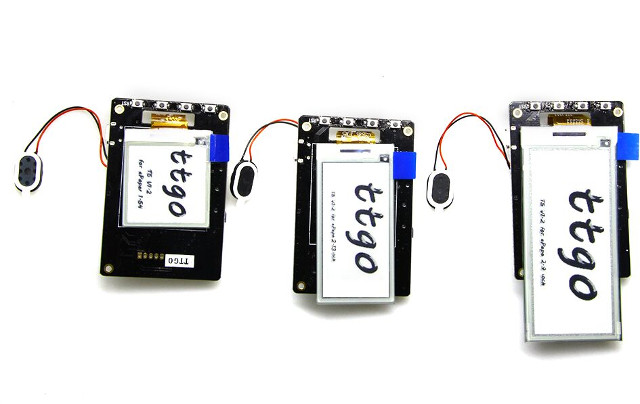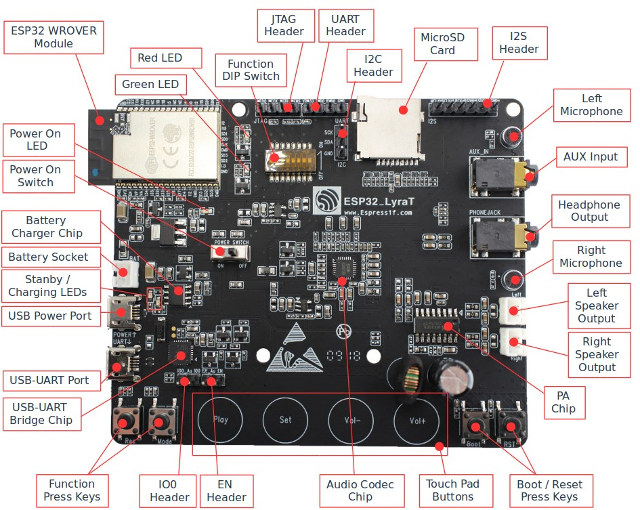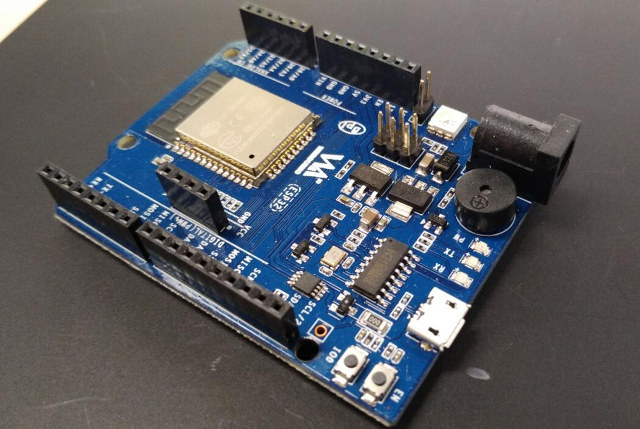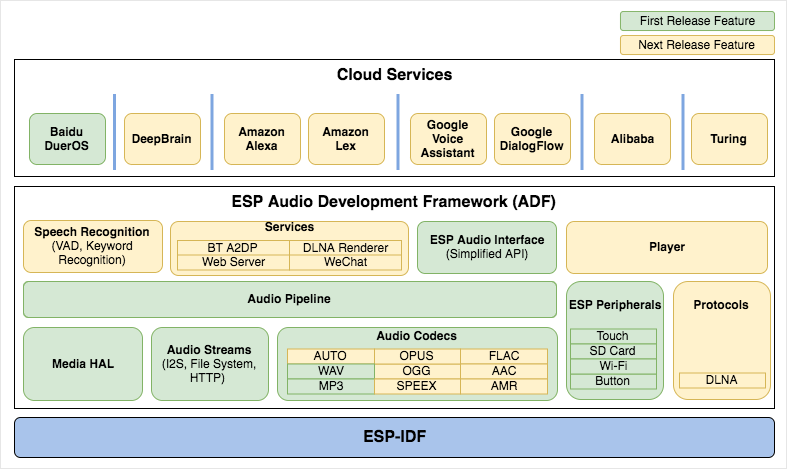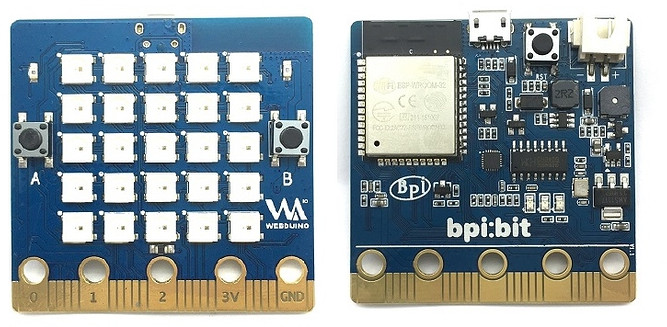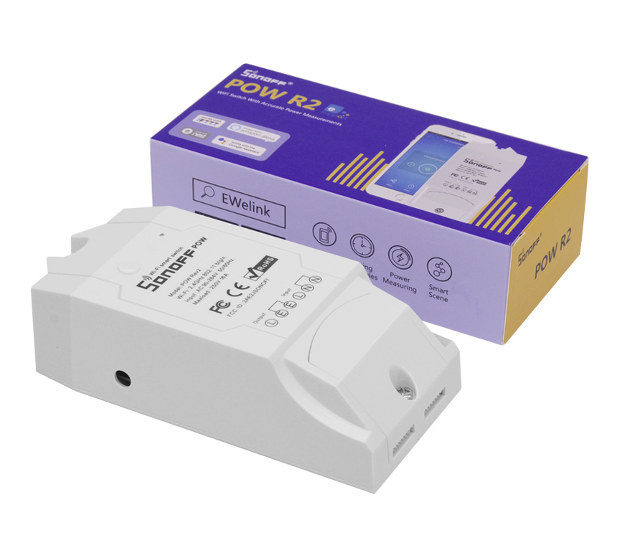In case you’d like to flash ESP8266 boards using a phone, you can now do so with ESP8266 Loader app for Android, which also gives you access to the serial console. All you’ll need to an Android smartphone with USB OTG support, a good USB cable, and a few ESP8266 boards such as Wemos D1 mini or NodeMCU. It should also be possible to use a TV box instead. Other listed features: Support any USB chip – CDC/ACM, FTDI, PL2303, CH34X and CP210X Change the SSID & password automatically durring upload No Ads (Pro version) Access to Google Drive storage (Pro version) Multiple upload widgets button (Pro version) That’s a free app with premium features, which also means it’s not open source, so any new features would have to be implemented by the developer. I asked him whether ESP32 boards were also supported, but he answered the app only works […]
The World’s Smallest ESP8285 WiFi Module?
Taiwan based Blkbox may have designed the world’s smallest WiFi IoT module with their Espressif Systems ESP8285 based BB-E01P module pin-compatible with ESP-01 module, and measuring just 14×10 mm. BB-E01P module specifications: WiSoC – Espressif ESP8285 WiFi SoC with 1MB internal flash Connectivity – 802.11 b/g/n WiFi with chip antenna Expansion – 8-pin (2.54mm pitch) with Tx/Rx, CP, RS, GPIO0, GPIO2, 3V, GND (Same layout as ESP-01) Misc – Jumper supports Deep Sleep Mode (AT+GSLP) Power Supply – 3-3.6V Dimensions – 10 x 14 mm The board is preloaded with firmware version AT v1.6 / SDK v2.2. The module can be purchased on Tindie for $6.80 + shipping, so not quite as cost effective as ESP-01 module, but if the size / thickness is important for your project, that may still be worth it. The developer/company? seems to specialize in tiny modules, and they have a slightly larger (19x13mm) module […]
TTGO T5 is an ESP32 WiFi + Bluetooth Board with ePaper Display and Speaker
Lilygo has made another ESP32 board part of their TTGO family with TTGO T5 board powered by Espressif System ESP32 WiFI & Bluetooth SoC, and offering a choice of ePaper displays from 1.54″ to 2.9″, as well as built-in speaker. TTGO T5 board specifications: SoC – Espressif ESP32 dual core Tensilica LX6 processor with WiFi 802.11 b/g/n and Bluetooth 4.1 LE Storage – micro SD card slot Display (one of the other) 1.54″ 200×200 black & white ePaper display; Full refresh time – 2 seconds 2.13″ 250×122 black & white ePaper display; Full refresh time – 2 seconds 2.7″ 264×176 black & white ePaper display; Full refresh time – 6 seconds 2.9″ 296×128 black & white ePaper display; Full refresh time – 2 seconds Viewing angle – >170° Power Consumption – Refresh: 26.4mW(typ.); standby: <0.017mW Connected via SPI interface Audio – Mini Speaker Expansion – 24-pin header with GPIO, UART, […]
ESP32-LyraT Speech Recognition Board Sold for 22 Euros
Just last week, we wrote about Espressif ESP-ADF Audio development framework that can be used to develop smart speakers and other audio applications with ESP32 boards. There was only one board with documentation at the time however: ESP32-Lyra-T. One tiny problem: it was not for sale just yet, but today Olimex has announced the board is in stock, selling it for 22 Euros. Main features: Wireless module – ESP32-WROVER module with WiFi and Bluetooth LE Audio Many audio inputs – Wi-Fi, BT-audio, DLNA, 3.5mm audio Line-in 3.5mm headphone jack 2x microphones Speaker connectors Storage – micro SD slot Debugging – JTGA header, USB UART Misc – Touch sense buttons, function/boot/reset keys, DIP switch for configuration Power – 5V via micro USB port; battery header + charger chip You’ll find documentation on Espressif website (user guide) as well as on Github’s ESP-ADF (getting started guide). Jean-Luc Aufranc (CNXSoft)Jean-Luc started CNX Software in […]
Banana Pi BPI-ESP32 Board Follows Arduino UNO Form Factor, Works with Webduino and Arduino IDE
SinoVoIP has been pretty busy those days, as beside launching a BBC Micro:bit clone based on ESP32, and BPI-AI-Voice speech recognition board (also a clone or MicroSemi AcuEdge kit), the company has now started to take orders for Banana Pi BPI-ESP32 board for $10.99 plus shipping on Aliexpress. As the name implies, the based is based on ESP32 WiSoC, supports Arduino shields since it follows Arduino UNO form factor, and can be programming with web based Webduino visual programming IDE, or the Arduino IDE. BPI-ESP32 (aka BPI-UNO32) board specifications: Wireless module – ESP-WROOM-32 WiFi 802.11b/g/n, and Bluetooth 4.2 LE module; 4MB flash Expansion – Arduino headers with GPIOs, ADC, Ethernet, VP/VB, UART, I2C, Touch interface, etc… (See pinout table below) Misc – Buzzer, Tx/Rx LEDs, power LED, RGB LED, buttons Power Supply 5V/1A via micro USB 12V via 5.5mm DC jack Dimensions – 68 x 53 mm The company has […]
Espressif ESP-ADF Audio Development Framework for ESP32 Supports Baidu DuerOS, and Soon Amazon Alexa, Google Assistant, etc…
Espressif Systems have been working on audio applications like Smart Speakers based on ESP32 WiSoC with hardware development kits like ESP32-LyraTD-MSC Audio Mic HDK, and I could test it with Baidu DuerOS using Mandarin language. However, at the time (February 2018), there was not much else that could be done with the hardware kit, since no corresponding ESP32 audio software development kit had been made available. This has now changes since Espressif has just released ESP-ADF Audio Development Framework on Github. The framework will support the development of audio applications for the Espressif Systems ESP32 chip such as: Music player or recorder handling MP3, AAC, WAV, OGG, AMR, SPEEX … audio formats Play music from network (HTTP), storage (SD card), Bluetooth A2DP/HFP Integration with Media services such as DLNA, Wechat, etc.. Internet Radio Voice recognition and integration with voice services such as Alexa, DuerOS, Google Assistant As we can see […]
$19.50 BPI:bit ESP32 Board is Inspired by BBC Micro:bit, Compatible with Webduino and Arduino IDE
BBC micro:bit board for education was first unveiled in 2015, before starting to be given away to UK students, and later sold for about $19 in 2016. The board supports Bluetooth connectivity, includes an array of 25 LEDs, as well as a specific 20-pin edge connector also featuring 5 large holes (rings) for 3 I/Os and power. So far I had not seen any clones or alternative boards inspired from the design, as we see for Arduino or Raspberry Pi boards. But SinoVoIP (Banana Pi) has changed that with their BPI:bit clearly inspired from the Micro:bit, but offering both WiFi and Bluetooth connectivity via an ESP32 module. Hardware specifications: Wireless module – ESP-WROOM-32 module with WiFi and Bluetooth LE connectivity LEDs – 25x RGB LED array Sensors – 2x light sensors, thermistor, 9-axis accelerometer / gyroscope / compass (MPU-9250) Expansion – 3 digital/analog I/O rings, 3V/GND ring, 20-pin edge connector […]
Sonoff Pow R2 is a Power Monitoring WiFi Smart Switch with Better Accuracy, Safety and Extra Features
ITEAD Studio released several wireless switches / sockets with power monitoring capability over the years. Recently they company launched Sonoff S31 smart socket that plugs directly into your AC socket and does not require any wiring, but earlier they introduced Sonoff Pow that is meant to be connected directly into your circuit via terminals. ITEAD has now launched an upgrade to the latter – Sonoff Pow R2 – with many of the same features, including support for eWelink, but offering 99% measurement accuracy, overload protection defined by the user, and various other features like the ability to export data. Sonoff Pow R2 (Revision 2) specifications: WiSoC – Espressif ESP8266 (TBC) Connectivity – 802.11 b/g/n WiFi with WPA/WPA2 support Voltage Range – 90 to 250 VAC input Max Current – Up to 16A Max Power – 3,500 Watts Terminals – 6 terminal for mains and load’s ground, live and neutral signals. […]


